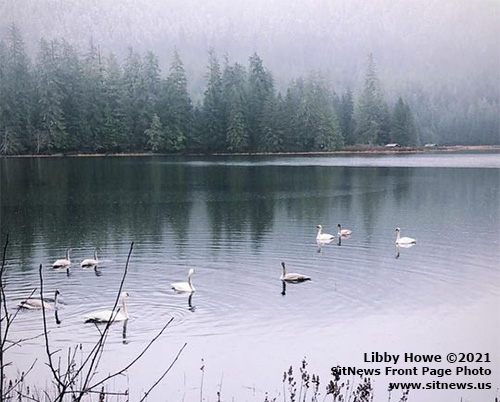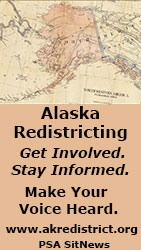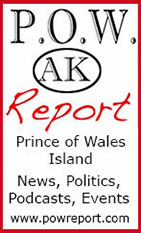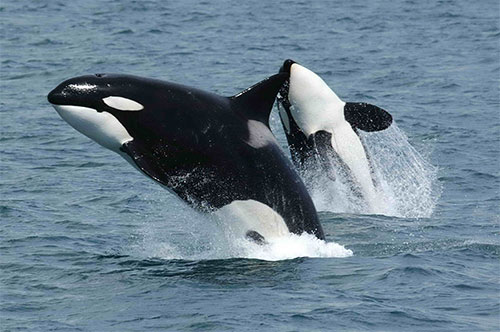









 Contact Contact 
 Webmail
Letters Webmail
Letters
 News Tips News Tips
 Copyright Info Copyright Info
 Archives Archives
Quick News
Search
 Alaska Alaska
 Ketchikan Ketchikan
 SE Alaska SE Alaska
Columns
- Articles
 Dave Kiffer Dave Kiffer
 Money Matters Money Matters
Historical
Ketchikan
 June Allen June Allen
 Dave
Kiffer Dave
Kiffer
 Louise
B. Harrington Louise
B. Harrington
Sports
 Ketchikan Links Ketchikan Links
Public Records
 FAA Accident Reports FAA Accident Reports
 NTSB
Accident Reports NTSB
Accident Reports
 Court Calendar Court Calendar
 Recent Filings & Case Dispositions Recent Filings & Case Dispositions
 Court Records Search Court Records Search
 Sex Offender Reg. Sex Offender Reg.
 Public Notices Public Notices
 Alaska Recall Alerts Alaska Recall Alerts
 Recalls.gov Recalls.gov
 AST Daily Dispatch AST Daily Dispatch
 KTN
Police Reports KTN
Police Reports
 Juneau Police Reports Juneau Police Reports
Weather,
Webcams
 Today's
Forecast Today's
Forecast
 KTN
Weather Data KTN
Weather Data
 AK
Weather Map AK
Weather Map
 AK Weathercams AK Weathercams
 AK Earthquakes AK Earthquakes

|
|

Friday
November 26, 2021

Ward Lake: Trumpeter swans
SitNews Front Page Photo by LIBBY HOWE©2021
To have your photo(s) featured on the front page,
email your photo(s) to editor@sitnews.us |
|
Fish Factor: Alaska lawmakers put party politics aside to protect fisheries By LAINE WELCH - A grilling on fish that is taken as bycatch didn’t satisfy the appetites of a bipartisan group of Alaska legislators at a special hearing on November 15 by the House Fisheries Committee.
“We probably could not be more diametrically opposed on many things but we are frustrated with the waste of the resource and we are in lock step. It's all about the best economics and the best stewardship of our resources,” said Kevin McCabe (R-Big Lake) who devoted his entire November Capital Report to the topic.
“The fish don't care if you're red or blue,” said Sarah Vance (R-Homer), the catalyst behind the bycatch hearing. “We lay aside everything else and focus on good stewardship and making sure that every fisherman is able to get fish in the freezer and food on the table.”
The bycatch issue came to a head this summer when all Yukon River salmon fisheries were canceled due to so few returning Chinook and chums. Along with ocean and climate impacts, villagers questioned the takes by huge trawlers that catch and process fish at sea.
A presentation by Glenn Merrill , regional administrator at NOAA Fisheries/Alaska, showed that in the 2019 Bering Sea pollock fishery 20,000 Chinook salmon were taken as bycatch and more than 500,000 chums, but only 1% originated at the Yukon River.
The hearing shifted from salmon to the building anger among Alaskans over the amounts of halibut, crab and other creatures taken as bycatch in federally managed waters (3-200 miles out), where nearly 65% of Alaska’s fish volumes are harvested.
Most bycatch is taken by a wrong gear or the fish is caught out of season or it’s too small and federal law dictates that it must be thrown overboard, Merrill explained.
He showed that bycatch totals in 2020 were 3.3 million pounds by pot gear, over 38.5 million pounds by hook and line gear and over 92 million pounds by trawlers, who fish at varying depths down to the bottom.
Federal rules for fisheries, “require balancing minimizing bycatch to the extent practicable while achieving the optimum yield from each fishery,” Merrill told the Fish Committee and 140 watchers and listeners.
How does that play out on the water? Some examples :
Bering Sea sablefish (black cod) in 2020 ended the year at 7.9 million pounds (519%) over the trawl bycatch limit. Managers responded by increasing the 2021 trawl limit by 65%.
In response to complaints, the NPFMC said in June 2021: “When constraints such as high bycatch rates emerge, vessel operators do not have the option to cease fishing completely because cost accrual on such large platforms would be unsustainable.”
Sablefish takes are currently 2 million pounds (165%) over the 2021 bycatch limit and fishing continues.
A fundamental management failure is now on display in the Bering Sea crab fisheries, where trawl bycatch for 2021/22 is higher than what the crabbers can take.
A mish-mash of numbers show that trawl caps for snow crab, for example, are 5.99 million individual crabs, while the catch quota for the crab fleet is 5.6 million pounds. At an average weight of 1.3 pounds, the trawl snow crab bycatch could total 7.78 million pounds.
For Bristol Bay red king crab, closed for the first time in 25 years, trawlers are allowed 80,000 animals totaling more than 500,000 pounds.
Many Alaskans are calling for a shift away from protecting “optimum yields” in industrial trawl fisheries towards optimizing the health of the state’s fishery resources and communities.
That will be put to the test in early December when, after six years of discussion and 26.5 million pounds of halibut dumped, the North Pacific Fishery Management Council (NPFMC) is poised to reduce a fixed cap of more than four million pounds by bottom trawlers targeting flatfish in halibut nursery grounds of the Bering Sea.
Those fish will grow and migrate through the Gulf of Alaska and downstream to British Columbia, all the way to California.
That means that over 3,000 commercial halibut fishermen, 955 charter operators, several thousand halibut sport fishermen and over 4,000 subsistence harvesters all are affected by halibut bycatch in the Bering Sea, according to Linda Behnken, director of the Alaska Longline Fishermen’s Association and a former NPFMC member.
The State of Alaska has a vote on the bycatch reduction options being considered. Rep. Vance asked what that position will be.
“We are reviewing all the materials at the present time but we don’t have a position yet on what we’re going to do,” said Alaska Dept. of Fish and Game Commissioner Doug Vincent-Lang. “We are going to take a step to have a significant reduction in halibut bycatch but which alternative would be premature to postulate what we will ultimately support until we’re done reading all the materials in advance of that meeting.”
The 20 bottom trawlers in this bycatch scenario are all “Seattle-based” and owned by “six or so companies,” said NPFMC director, Dave Witherell who also presented at the hearing.
Vincent-Lang quickly came to their defense.
“Although they may be homeported in Seattle, they pay significant fishery landing taxes to the state of Alaska and what we’re seeing is the ownership of these vessels is increasingly becoming Alaska-based with the Community Development Quota groups in Western Alaska basically buying into this industry,” Vincent-Lang said. “That contributes a lot to those coastal economies.”
There are six CDQ groups that represent 65 communities within 50 nautical miles of the Bering Sea coast. All are allocated portions of the region’s catches; all are owners or part owners of large fishing vessels.
Rep. Jonathan Kreiss-Tomkins (D-Sitka) asked the State’s perspective on habitat impacts by bottom trawlers on crabs and other species.
“I am going to defer an answer on that because I have not given that a good deal of thought,” Vincent-Lang replied. “I will speak to my staff and promise to get back to you with an assessment on that. But I have not really dug down into that issue to be able to answer in a good manner right now.”
Rep. Dan Ortiz (I-Ketchikan) questioned the makeup of the NPFMC, notably its lack of indigenous members.
“The appointments of the membership are made by the governors of Alaska and Washington,” said Witherell. “If the governor of Alaska wants to appoint someone who’s Native, the governor can do so.”
The NPFMC makeup is raising eyebrows among Alaskans because a majority of voting members of the NPFMC along with the top executives of its 19 member Advisory Panel have direct ties to the trawl fleets. (Google it.)
NPFMC chair Simon Kinneen, for example, is the Vice President & Quota and Acquisitions Manager for Norton Sound Economic Development Corporation, owner of Glacier Fish Company, which operates a 201-foot and a 376-foot trawlers in the Bering Sea.
“The lack of transparency and disclosure of conflicts of interest is a great concern,” said Rep. McCabe. - More...
Friday PM - November 26, 2021
|
 |

Alexander Winterbourne Brindle
Photo Courtesy Find A Grave
|
Ketchikan Historical: Winn Brindle's national exposure; Legendary Ketchikan cannery owner once appeared in baby food ad By DAVE KIFFER - Ketchikan was barely three years old as an incorporated town when one of its youngest residents became nationally famous.
Well, technically Winn Brindle was a resident of Kasaan at the time, but that was not how the public at large saw it.
Little Folks magazine was a national monthly magazine published in Salem, Massachusetts for children aged 3 to 12, but the advertisements in the magazine were clearly aimed at the parents of those children. Such as the one for "Mellin's Food for the Baby" that featured a smiling Alexander Winterbourne Brindle, aged 2, of Ketchikan Alaska.
"This boy, Alexander Winterbourne Brindle, was raised on Mellin's Food and his little baby brother is now "doing splendidly" on Mellin's Food; they live in Ketchikan, Alaska," the ad proclaimed.
"Doing Splendidly" was the catch phrase for Mellin's Food, which began operating in Boston in 1866 and primarily marketed a substitute for mother's milk that was a powder diluted with cow's milk and water and called a "milk modifier" that also included extract of wheat, malted barley and bicarbonate of potassium. The company marketed the product as "the only perfect substitute for Mother's Milk."
Brindle, later in life known as Winn, would grow up to become one of the leaders of the Northwest salmon canning industry.
According to his obituary by the Alaska Business Hall of Fame in 1985, Brindle "rose from humble beginnings as a mine watchman's one to establish one of Alaska's top seafood processing enterprises."
"His gruff, hard driving exterior, along with his business savvy, earned him high respect in the industry," the Hall noted. "But those closest to him all agree: His true nature was reflected by his loyalty, generosity and integrity."
A.W. "Winn" Brindle was born in Seattle 1901. His parents were Alexander and Marie Brindle. When he was still an infant, his family moved to Kasaan, where his father was a watchman at a nearby mine. In 1908, Marie Brindle insisted the family move to Ketchikan so Winn and his siblings could attend school. At that point, family members say, Winn spoke Haida more fluently than English.
As a child, Brindle showed the entrepreneurial spirit, collecting Seattle from the steamships at the Ketchikan docks and reselling them to locals who wanted news from the outside world.
He also - with the help of his younger brothers - hauled coal to Ketchikan households, including those up many flights of stairs.
When his father died, Winn had to take on additional duties. Winn and his older brothers took on many odd jobs and, at one point, even purchased a vessel to haul ore from mines in the region.
The major move in his life was when he and his brother Harold purchased the Walsh-Moore Cannery in Ward Cove inn 1928. The cannery had opened in 1912 and would operate until 2003.
Renaming the cannery, Wards Cove Packing, the Brindle's would use it as a springboard to a statewide cannery empire. Although the Great Depression soon put a damper on many regional industries, salmon canning - especially the individual ones that were not tied down by large amounts of corporate debt - survived, and Wards Cove was one of the lucky ones. - More...
Friday PM - November 26, 2021 |
|
Southeast Alaska: USDA Announces Steps to Restore Roadless Protections on Tongass National Forest; Alaska Delegation Criticizes Biden Administration Rule to Restrict Economic Activity Across the Tongass Posted & Edited By MARY KAUFFMAN - The U.S. Department of Agriculture (USDA) recently announced it is taking steps to repeal the 2020 Alaska Roadless Rule and restore protections to more than nine million acres of inventoried roadless areas on the Tongass National Forest. The Alaska Roadless Rule, approved on Oct. 29, 2020, exempted the Tongass from the 2001 Roadless Rule, which prohibited road construction, reconstruction and timber harvest in inventoried roadless areas – with limited exceptions. The announcement was made on November 19, 2021. The proposed rule repealing the 2020 rule was published on November 22, 2021 for public comment.
USDA determined that the underlying goals and purposes of the 2001 Roadless Rule continue to be a critical part of conserving the resources of the Tongass, especially when it comes to the values that roadless areas represent for local communities, Alaska Natives and the economy of Southeast Alaska. The decision to repeal the 2020 Alaska Roadless Rule is based on the multiple ecologic, social, cultural and economic values supported by roadless areas on the Tongass. More than 95% of commenters opposed exempting the Tongass from the 2001 Roadless Rule during the public comment periods leading up to the 2020 Alaska Roadless Rule.
“Restoring the Tongass’ roadless protections supports the advancement of economic, ecologic and cultural sustainability in Southeast Alaska in a manner that is guided by local voices,” said Agriculture Secretary Tom Vilsack. “The proposed rule is considerate of Alaska’s Tribal Nations, community input, and builds on the region’s economic drivers of tourism and fishing.”
In a prepared statement U.S. Senator Lisa Murkowski (R-AK) said, “This is a frustrating decision that will impact not just timber, but a wide range of industries in Southeast Alaska—tourism, recreation, mining, energy development, and transportation alike—so we will fight it.”
Murkowski said, “It is needless, given the level of protections that already exist for the Tongass. It misses a genuine opportunity to work together to establish a sustainable regional economy. And it is exasperating, given that we just passed a historic infrastructure bill, that the Biden administration is intent on returning the Tongass to an overly restrictive environment where projects almost always take longer and cost more, if they can proceed at all. Everything from the deployment of broadband to the development of more affordable energy stands to suffer under a return to the failed Roadless Rule.”
“Like many Alaskans, I am deeply frustrated by the Biden administration’s continued assault on our state. This latest announcement announcement by Secretary Vilsack shows a complete disregard for the interests of Alaska’s hard-working families,” said Senator Dan Sullivan (R-AK) in a prepared statement.
Sullivan said, “Instead of serving as puppets for the extreme leftist environmental groups who have no interest in promoting economic opportunities in our state, the Biden administration should recognize that Alaskans in Southeast—like any Americans—have a right to connect their communities, sustain local economies, build renewable energy projects, and responsibly harvest resources, all of which is being crushed by a return to this overly-burdensome and out-of-touch regulation.”
Congressman Don Young said in a prepared statement, “USDA Secretary Vilsack - who works in a federal agency office 3,000 miles away from our state — doubled down on this Administration's record of hostility toward Alaska. Earlier this year, I implored Secretary Vilsack to come to Southeast to visit our communities before making a decision on the Tongass. Clearly, he did not. Those in Southeast, including Alaska Natives, know how to balance environmental protection with development; they have been doing it for years. To lock up the Tongass, as Secretary Vilsack is doing, sends the message that this Administration does not trust Alaskans to take care of the very environment in which they live. All our communities are asking for are the same things many people in the Lower 48 take for granted: transportation, economic opportunity, outdoor recreation, and the ability to stay connected with one another. This is truly a sad day for Alaska.”
Young said, “To the countless families whose economic opportunity and chances of a better life are being snuffed out by the Biden Administration, I want you to know that I will keep fighting for you. I will not stop working until my constituents in Southeast receive the trust and respect they deserve from the people in D.C. who continue to think they know what is best for them.”
Quoting a news release, Audubon applauded the administration’s commitment to undoing the Trump-era decision to remove the protections of the Roadless Area Conservation Rule from our largest roadless areas in the nation.
Audubon Alaska’s Executive Director, Natalie Dawson said, “This action, combined with the administration’s global commitments to ending old growth logging and the USDA’s investment in sustainable forest management in the region are moving the Tongass into a future where we value standing trees and healthy communities."
The National Wildlife Federation and the Southeast Alaska Conservation Council also applauded the Biden Administration for beginning the process to restrict development on more than 9 million acres of North America’s largest temperate rainforest.
David Willms, senior director of Western wildlife and conservation at the National Wildlife Federation said, “There are so many reasons to protect this national treasure. The Tongass is home to diverse wildlife, sacred Indigenous sites, endless outdoor recreation opportunities, and thriving commercial fisheries. The old-growth forest also plays a vital role in storing carbon.”
Willms said, “Restoring Roadless Rule protections is the right thing to do for wildlife and people alike.”
Meredith Trainor, executive director of Southeast Alaska Conservation Council said, "The Biden administration’s announcement today [Nov. 19, 2021] marks a critical inflection point in the long history of the fight to protect the Tongass National Forest.”
Trainor said, “Beginning Tuesday [Nov. 23rd], we need both Alaskans and Americans across the country to show up once more to speak out on behalf of our forest, and to once again submit comments supporting the restoration of the national Roadless Rule to the Tongass, so we can spend the next three years of the Biden administration doing the legwork to make these decisions real and lasting."
Defenders of Wildlife Alaska policy advisor Pat Lavin in a prepared statement said, "Defenders applauds this welcome shift in priorities for the Forest Service on the Tongass, from destructive liquidation of irreplaceable old-growth forests to restoration and recreation investments developed with local input and participation. Protecting roadless and old-growth forests on the Tongass will conserve biodiversity, help address climate change and align Tongass management with the economic realities in Southeast Alaska. We look forward to working with the Biden administration to similarly protect older forests and wildlands across the nation." - More...
Friday PM - November 26, 2021
|
|
Alaska: Alaska Delegation: Biden Administration’s Decision to Tap Strategic Petroleum Reserve is Misguided and Insufficient; Alaska Delegation Calls on Administration to Increase Domestic Production Posted & Edited By MARY KAUFFMAN – On November 23rd, President Biden announced the release of oil from the Strategic Petroleum Reserve as part of his ongoing eforts to lower prices and address lack of supply around the world. President Biden announced the Department of Energy will make available releases of 50 million barrels of oil from the Strategic Petroleum Reserve to lower prices for Americans and address the mismatch between demand exiting the pandemic and supply. This is done because American consumers are feeling the impact of elevated gas prices at the pump and in their home heating bills, and American businesses are, too, because oil supply has not kept up with demand as the global economy emerges from the pandemic as per the White House briefing.
According to the November 23rd White House briefing, the U.S. Department of Energy will make available releases of 50 million barrels from the Strategic Petroleum Reserve in two ways:
- 32 million barrels will be an exchange over the next several months, releasing oil that will eventually return to the Strategic Petroleum Reserve in the years ahead. The exchange is a tool matched to today’s specific economic environment, where markets expect future oil prices to be lower than they are today, and helps provide relief to Americans immediately and bridge to that period of expected lower oil prices. The exchange also automatically provides for re-stocking of the Strategic Petroleum Reserve over time to meet future needs.
- 18 million barrels will be an acceleration into the next several months of a sale of oil that Congress had previously authorized.
This oil release will be taken in parallel with other major energy consuming nations including China, India, Japan, Republic of Korea and the United Kingdom. It was announced the President stands ready to take additional action, if needed, and is prepared to use his full authorities working in coordination with the rest of the world to maintain adequate supply as we exit the pandemic.
The Alaska Delegation all prepared individual statements in response to President's Biden's announcement.
U.S. Senator Lisa Murkowski (R-AK) released a prepared statement after the Biden administration announced on Nov. 23rd it will exchange and sell oil from the Strategic Petroleum Reserve (SPR), which is meant to be used to respond to severe energy supply disruptions.
Murkowski also knocked the administration for pursuing this false solution – debunked as recently as last week at a hearing held by the Senate Energy and Natural Resources Committee (watch) on November 16th. – after months of supply-side restrictions that have added to current prices and kept U.S. energy producers on the sidelines. - More...
Friday PM - November 26, 2021 |
|
Alaska Science: Listening to the voices of killer whales
By NED ROZELL - In the deep blue ocean just off the coast of Alaska, killer whales are now communicating with one another with clicks and whistles. Scientists are hearing them.
Hannah Myers has listened to many hours of orca calls in the Gulf of Alaska. The University of Alaska Fairbanks graduate student often knows a killer whale’s family group after hearing just a few syllables of its call.
Using hydrophones (underwater microphones) lowered into saltwater entrances of a few iconic Alaska bays, Myers has found that killer whales are present even in winter, something scientists did not know before.
Myers’ year-round listening complements decades of work by Dan Olsen and Craig Matkin of the nonprofit North Gulf Oceanic Society based in Homer. Olsen and Matkin have long studied killer-whale diets, have identified individuals with photos and have documented the damage done by a leaking oil tanker.
After joining Olsen and Matkin’s team in 2019, Myers has developed a great appreciation for the creatures whose echoes and squeaks she hears in her headphones. Killer whales are somewhat like humans in a few ways:
- Orcas live to about the same age as people, with females living longer than males.
- Their body temperature is the same as yours and mine.
- Female killer whales undergo menopause.
- Killer whales often form pods, family groups led by mother whales that can include their babies, those babies’ babies and even great-great grandwhales.
Scientists describe killer whales as “cosmopolitan,” meaning they can be found in just about any ice-free ocean on Earth, though most live in colder waters. At least 50,000 of the sleek black-and-white mammals are jetting through salt water today.
Swimming off Alaska’s southern coast are three distinct groups of killer whales that are almost identical to the eye but have likely not bred with each other for hundreds of thousands of years.
Scientists call the first of these killer whales residents. They eat mostly salmon, preferring chinooks. Residents are the orcas in stable social groups led by females.
Transient killer whales eat seals, sea lions, porpoise and other marine mammals. Myers’ sound recordings have included the voices of seven transient killer whales that are the only surviving whales of a group devastated by effects of the crude oil released by the Exxon Valdez in 1989. The seven remaining are from a group that had at least 22 members before that event.
Offshore killer whales, found in the deep ocean away from the coast, eat sharks, especially Pacific sleeper sharks, with a fondness for their livers. - More...
Friday PM - November 26, 2021
|
|
National: Supreme Court could redefine when a fetus becomes a person, upholding abortion limits while preserving the privacy right under Roe v. Wade By MORGAN MARIETTA - Since the Supreme Court recognized a constitutional right to abortion almost 50 years ago, a powerful legal movement has sought to overturn the ruling, while abortion rights advocates have fought to protect it.
On Dec. 1, 2021, the court will hear a case many believe will force the conservative justices — who now command a majority of the court — to decide if they will strike down Roe v. Wade or uphold the long-standing precedent.
There is a third path the justices could take. The court may focus its ruling on a more neglected aspect of the ruling in Roe — the court’s understanding of the facts of fetal personhood.
Roe not a monolith
There are two separate rulings in Roe:
1) The Constitution protects a right to privacy, which encompasses the abortion decision.
2) A fetus is not a person in the early stages of pregnancy. Personhood emerges around the time of viability at approximately 6 months, which justifies a compelling state interest at that point.
This is why individual states are forbidden under current rulings from outlawing abortions in the first or second trimester of pregnancy, but can make the procedure illegal during the third trimester after the viability of the fetus.
The upcoming debate at the Supreme Court is less about the existence of the abortion right and more about the second ruling in Roe v. Wade in 1973 — that the right is limited by the emerging personhood of a fetus.
The State of Mississippi has redefined the emergence of personhood to be at 15 weeks, not 24, and outlawed abortions prior to this point.
Everything hinges on the judgment of personhood.
Determining the facts
When the Supreme Court considers how constitutional rights apply to the facts of our society, they are often forced to rule on what those broad prevailing facts are. The justices could cite experts, employ their own perceptions or a third option: allow diverse democratic decisions through state legislatures, what could be called the federalism of facts.
In Roe, the core factual question was whether a fetus is a person—a human who holds rights and hence cannot be killed lawfully by another person.
The court, ruling in 1973, recognized the problem that, “When those trained in the respective disciplines of medicine, philosophy, and theology are unable to arrive at any consensus, the judiciary, at this point in the development of man’s knowledge, is not in a position to speculate as to the answer.”
But the justices were nonetheless compelled to do so. The court ruled that “the unborn have never been recognized in the law as persons in the whole sense.” Therefore, “the word ‘person,’ as used in the 14th Amendment, does not include the unborn.”
However, the court saw the personhood of a fetus as developing during the course of a pregnancy. Therefore, “it is reasonable and appropriate for a State to decide that at some point in time another interest, that of health of the mother or that of potential human life, becomes significantly involved.”
The court concluded that “with respect to the State’s important and legitimate interest in potential life, the ‘compelling’ point is at viability.”
This means that in the early stages of pregnancy, abortion cannot be outlawed, but “if the State is interested in protecting fetal life after viability, it may go so far as to proscribe abortion during that period, except when it is necessary to preserve the life or health of the mother.” - More...
Friday PM - November 26, 2021
|
CARL GOLDEN: SUPPORT FOR BIDEN STILL FLAILING DESPITE INFRASTRUCTURE SUCCESS - A desperately needed bounce in public acclaim following President Biden’s signing of the $1 trillion infrastructure proposal has yet to materialize, leaving the president wallowing in the low 40 percent range in job performance approval from a discontented and dispirited nation helpless in the face of out-of-control inflation.
Warned each day of a supply chain choked off to the point of paralysis, Americans were also pummeled by reports of double-digit percentage increases in the cost of virtually every essential item, including heating bills just as the winter season descends.
The administration response that the inflationary pressures were temporary, caused by recovering from the COVID-19 pandemic lockdowns, didn’t square with the real life experiences of the American people.
For months, the administration assured the party establishment that once the warring factions in Congress called a truce and approved part one of the infrastructure package, all would be well.
But the American people did not rise to their feet in a spontaneous display of thanksgiving for the enactment of a plan to spend $1 trillion on construction and rehabilitation of roads, bridges and the like, dealing a crushing blow to Democratic hopes for reversing the growing speculation that the 2022 midterm elections would return Republicans to majority power.
Not only did the theory turn out to be badly flawed, but the $1.75 trillion second act in the infrastructure drama appears in jeopardy as progressives and moderates appear poised to clash once again over the cost and scope. - More...
Friday PM - November 26, 2021
CHRISTINE FLOWERS: TREAT ALL INSTANCES OF HATRED AND BIAS EQUALLY - About a month ago, I was traveling on the subway in Philadelphia when I was attacked by a young African-American male in a hoodie, who was angry that I was filming him after he’d punched me in the head moments before.
I made a report, and other than anger that SEPTA is incapable of guaranteeing my safety for the increasingly expensive fare they charge, I’m fine. In fact, I’d basically forgotten about the incident until last week, when I saw a video of a few African-American girls attacking Asian students in a Philadelphia subway car.
It is a disgusting display of inhumanity, with the aggressors yelling and screaming curses at the victims, who seem to be cowering in their seats and very much afraid for their lives. The attackers appear to be unarmed in the video, but they are feral and brutal, and much more violent than the teen who attacked me.
When the first reports were issued about the attacks on the train, local media and officials twisted themselves into Philly soft pretzels to avoid addressing the elephant in the room. One news channel posted an article about how they were “investigating” if this was a hate crime, ignoring the fact that on the video you can, if you listen closely, discern racial epithets screamed at the victims. It’s not conclusive, but it matters.- More...
Friday PM - November 26, 2021
FINANCIAL FOCUS: What to know about early IRA withdrawals Provided By BEN EDWARDS, AAMS® - While you’re working, you may be contributing to an individual retirement account (IRA), which can provide a tax-advantaged way to save for your future. So, is it ever a good idea to tap into your IRA before you retire?
Ideally, you should leave this account intact until your retirement. After all, you could spend two or more decades in retirement, so you’ll need a lot of financial resources. Still, life is unpredictable, so there may be times you’ll consider taking money from your IRA. You’ll need to be aware, though, that if you withdraw funds before you turn 59½, you will generally trigger a 10% penalty. Plus, you’ll be taxed on whatever you take out, thereby losing, at least in part, the benefits of tax-deferred earnings offered by a traditional IRA. (With a Roth IRA, you can withdraw your contributions free of taxes and penalties, but the earnings may be taxed and penalized if you take them out before you’re 59½.)
If you need to withdraw funds from your IRA before you’re 59½, you may be able to avoid the 10% early withdrawal penalty if you meet an exception, such as one of these:
- More...
Friday PM - November 26, 2021
|

Political Cartoon: Giving Thanks
by Bill Day©2021, FloridaPolitics.com
Distributed to subscribers by CagleCartoons.com

Political Cartoon: News profits
by Rivers ©2021, CagleCartoons.com
Distributed to subscribers by CagleCartoons.com

Political Cartoon: Biden Lawsuit?
by Dick Wright ©2021, PoliticalCartoons.com
Distributed to subscribers by CagleCartoons.com

Political Cartoon: Unruly Airline Passengers
by Bob Englehart ©2021, PoliticalCartoons.com
Distributed to subscribers by CagleCartoons.com

Political Cartoon: Black Friday California Style
by Rick McKee ©2021, CagleCartoons.com
Distributed to subscribers by CagleCartoons.com |
The Bipartisan Infrastructure Bill: Thank you Alaska Congressional Delegation!
By MICHAEL SPENCE
- Ketchikan and Southeast Alaska will benefit greatly from the Infrastructure Bill recently passed by Congress and signed by President Biden.
It is a refreshing change in the polarized political climate in Washington DC, that our representatives can cross the party line and vote for something truly meaningful for our state and our country. U.S. Representative Don Young and Senators Murkowski and Sullivan deserve a lot of credit for the passage of this Bill. - More...
Friday PM - November 26, 2021
Food Insecurity Within Our Military By Donald Moskowitz
- Most of us are celebrating Thanksgiving and Christmas with family members, and enjoying bountiful meals, but what about approximately 160,000 families of active-duty military personnel who cannot afford to feed their families.
The food insecurity primarily impacts the most junior enlisted service members from the E1 to E4 ranks. According to the organization Feed America approximately 30% of these military members face food insecurity.
The lowest military ranks suffer with low pay along with high living costs at many base locations in the United States. The frequent moves required by the military makes it difficult for spouses to find work. Additionally, an Agriculture Department rule prevents military families from accessing food stamps.
Although there are charitable organizations providing some assistance, I am sure our military personnel prefer not to access charities for food. Maybe the Defense Department should review the pay rates for junior enlisted ranks and also provide increased living expense funding for high cost of living locations. - More...
Friday PM - November 26, 2021
The Alaska Permanent Fund: Taking Care of Alaska and Alaskans for 45 Years
By Craig Richards, Lucinda Mahoney, Corri Feige, William G. Moran, Steve Rieger, and Ethan Schutt - The late Governor Jay Hammond liked to dream big. He wanted to "transform oil wells pumping oil for a finite period into money wells pumping money for infinity." His dream came true. Because of the Alaska Permanent Fund, Alaska is now the only State that earns much of its unrestricted general fund revenues from the global economy.
Today, the Alaska Permanent Fund totals more than $80 billion. It's the largest sovereign wealth fund in the nation, the pride of Alaska and this month we celebrate its 45th anniversary. " - More...
Saturday - November 13, 2021
 |
Alaska Campaign Finance Law By Veri di Suvero and Beverly Churchill
- What are Alaskan voters to make of the recent Advisory Opinion that was issued by Thomas R. Lucas, Campaign Disclosure Coordinator for the Alaska Public Offices Commission? That advisory opinion was issued in response to a request to APOC for guidance regarding what limits, if any, still exist on a person’s ability to make campaign donations in Alaska. Uncertainty regarding this issue was created by the recent Ninth Circuit Court of Appeals decision in the Thompson v. Hebdon case, where a two-judge majority of a three-judge panel struck down as unconstitutional three provisions of the Alaska Statutes that placed caps on donations to the campaigns of candidates for political office. Alaska’s Attorney General chose not to protest the removal of all individual spending limits.
- More...
Saturday - November 13, 2021
 |
The Alaska Redistricting Board’s Last-minute Gerrymandering Failed Alaska By Sen. Tom Begich
= Given the opportunity to create a fair legislative map for Alaska, the Chair and a majority of the Alaska Redistricting Board instead chose a radical direction in the last two days that silenced the Alaska Native voices on the Board and threw a carefully developed plan – and quite possibly their own lawyer’s advice – out the window. They did this contrary to the Constitution and the public process.
- More...
Saturday - November 13, 2021
Pippin
By Robert Holston
- I was clueless when it came to Pippin coming up to any preconceived notions or knowledge of the musical. I knew nothing about Pippin. I was depending on the long history of First City Players to present a fall musical up to their typically high standards and WOW! They delivered again. Staging, lights, music, sound, dramatics, humor, costumes, the sets….. The list goes on. AND it was one of the most musical productions I’ve heard.
Kudos to Diedra Nuss and the band for making rather complex music delivered in a way that totally supported the outstanding stage cast. All the leads were great. And it was nice to see some new faces and names rise to the surface. - More...
Saturday - November 13, 2021
Email your opinions and letters for publication to editor@sitnews.us
|
Articles &
photographs that appear in SitNews may be protected by copyright
and may not be reprinted or redistributed without written permission
from and payment of required fees to the proper sources.
E-mail your news &
photos to editor@sitnews.us
Photographers choosing to submit photographs for publication to SitNews are in doing so, granting their permission for publication and for archiving. SitNews does not sell photographs. All requests for purchasing a photograph will be emailed to the photographer.
|
|
















|
|
![]() Contact
Contact ![]()
![]() Webmail
Letters
Webmail
Letters![]()
![]() News Tips
News Tips![]()
![]() Copyright Info
Copyright Info![]() Archives
Archives![]() Alaska
Alaska![]() Ketchikan
Ketchikan![]() SE Alaska
SE Alaska![]() Dave Kiffer
Dave Kiffer![]() Money Matters
Money Matters ![]() June Allen
June Allen![]() Dave
Kiffer
Dave
Kiffer![]() Louise
B. Harrington
Louise
B. Harrington ![]() Ketchikan Links
Ketchikan Links![]() FAA Accident Reports
FAA Accident Reports ![]() NTSB
Accident Reports
NTSB
Accident Reports![]() Court Calendar
Court Calendar![]() Recent Filings & Case Dispositions
Recent Filings & Case Dispositions ![]() Court Records Search
Court Records Search![]() Sex Offender Reg.
Sex Offender Reg.![]() Public Notices
Public Notices![]() Alaska Recall Alerts
Alaska Recall Alerts![]() Recalls.gov
Recalls.gov![]() AST Daily Dispatch
AST Daily Dispatch![]() KTN
Police Reports
KTN
Police Reports![]() Juneau Police Reports
Juneau Police Reports ![]() Today's
Forecast
Today's
Forecast![]() KTN
Weather Data
KTN
Weather Data![]() AK
Weather Map
AK
Weather Map![]() AK Weathercams
AK Weathercams![]() AK Earthquakes
AK Earthquakes








































